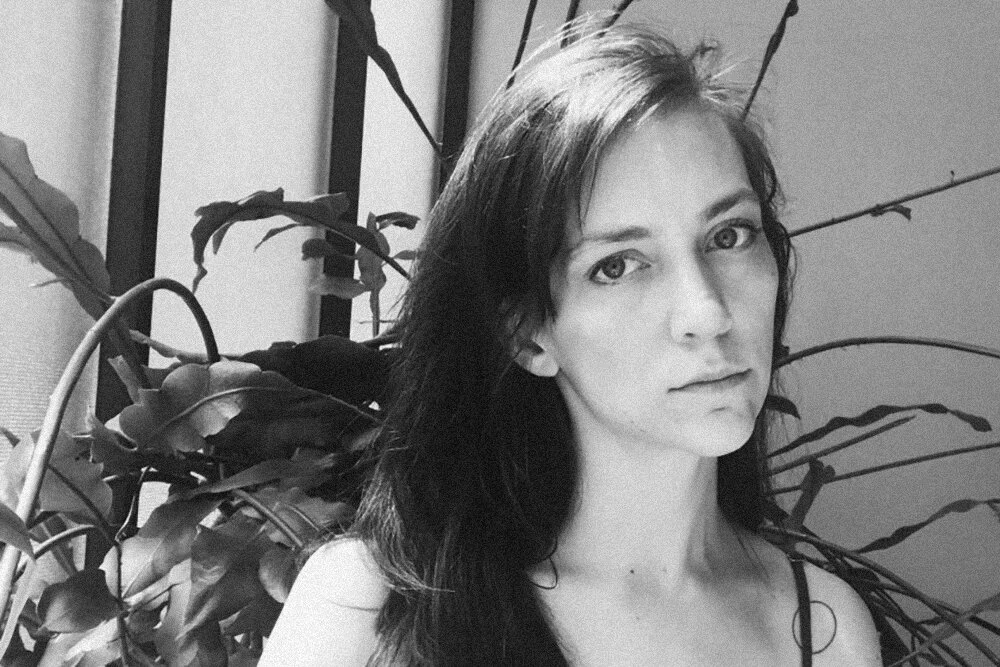Voices That Filled the Years
Catherine Lacey’s “Pew” listens to the American South.
BY JOSHUA JAMES AMBERSON
FROM THE MOMENT I picked up Catherine Lacey’s 2014 debut novel, Nobody is Ever Missing, I knew I would read everything Lacey wrote. The book was, to me, a revelation. Combining a distinct and finely-honed prose style existing somewhere between Virginia Woolf and Marilynne Robinson with the wide-ranging questioning of the best personal essayists, Lacey felt like she was writing in a genre of her own. Her 2017 novel, The Answers, took her talents into a near-future, speculative realm, expanding her audience and her reputation as a writer to watch.
Pew, released this summer, is Lacey’s third novel and fifth book in a span of only six years. Pew is an unexpected follow-up to the complex world of The Answers, though—a slow-burn of a book that lets the reader sit in its quiet tension. Part Rachel Cusk’s Outline Trilogy and part Ursula K. LeGuin’s The Dispossessed, it’s a book of philosophical questioning in the guise of a novel, told largely through a series of monologues. It begins with a simple, well-loved premise: a stranger comes to town; everything changes.
“I remember that it was a night in the summer of 2016 when I began to think of the book, almost as if it was a memory I’d just recovered,” Lacey says, emailing me from her home in Chicago earlier this year. “But I think the impetus of the book is somewhere between 1985 and 1999, during my childhood in Mississippi.”
The book’s narrator finds themself in the American South, without many firm memories of what came before and few words they feel able or willing to say. Early on they tell us, “I left some place, began walking, slept in all those churches, then everything else happened—that’s all I know.” One night, they sleep on a church pew in a new town and wake to find a family next to them and church in service. The family takes them in and gives them the nickname “Pew.” No one can agree on Pew’s age, gender, or race, and Pew doesn’t know and seems to believe these questions are unimportant.
“I thought about this impossible character, the silence I imagined might be inside a person without a history,” Lacey says, “then I put them in the noise of the south, a noise I know quite well.”
Their arrival coincides with preparations for the town’s annual Forgiveness Festival—an insular religious event—and during the same time a series of mysterious disappearances are occurring in the neighboring county. With tensions already running high, and without a category to place Pew in, Pew is treated with distrust and suspicion.
Since Pew largely doesn’t speak, most of the book is people speaking to them. “I found it was very pleasant to slip into a sort of writing that is more about listening than it is about speaking or thinking,” Lacey says. “These are the voices that filled the years of my life in which I could not speak (because I was an infant) or chose not to speak (because I was quiet) or was not listened to or taken seriously (because I was a girl).”
In a variety of ways, the book looks at the human inclination to create boxes and to separate groups from each other. Most prominently, it looks at the boxes created by race and gender, but it also questions the various communities we as humans create—families, churches, towns, organizations. “The setting of the novel is in one sense an abstraction of my hometown,” Lacey says, “a place that brings up intense and conflicting feelings in me.” Throughout the book, Lacey captures the way communities can appear beautiful or creepy, depending on what position you’re looking from.
At a town meeting, Pew observes how “Everyone knew everyone and they all belonged to one another. There was a certainty, a clarity, a real joy, that fused them all into one, into one massive entity, the weight of their years all pressed together, thousands of years in the room, all together like that, entwined with one another, no distance between any of them, no loneliness, no solitude—and it was easy to see, just then, how intensely one could want to belong here.”
As the Forgiveness Festival approaches, Pew is considered at once an infiltrator, a bad omen, and a savior. As everyone projects onto them, Pew considers the limitations of human existence and envisions ways to transcend. “I shut my eyes and imagined a life in which only our thoughts and intentions could be seen, where our bodies were not flesh but something else, something that was more than all this skin, this weight and limbs.”
Pew is out now on Farrar, Straus and Giroux.
Joshua James Amberson is a Portland, Oregon-based writer and creative writing instructor. He’s a regular contributor to The Portland Mercury and Hobart, and his work has appeared in The Rumpus, The Los Angeles Review of Books, and Tin House, among others. He’s the author of the chapbook Everyday Mythologies on Two Plum Press and is currently working on a book about eyes, vision, and blindness.







